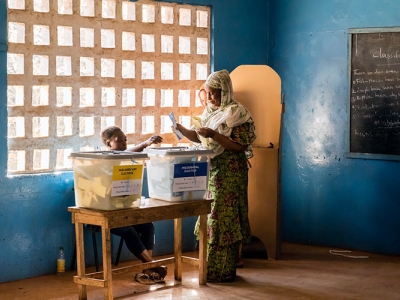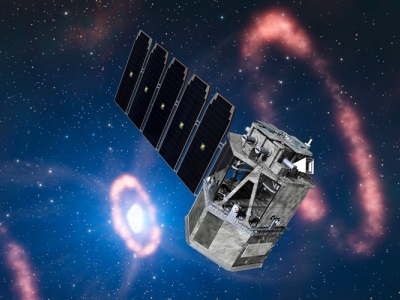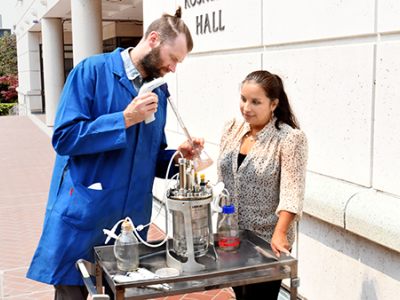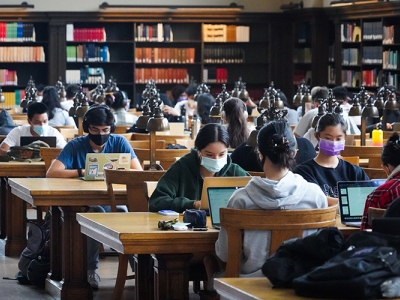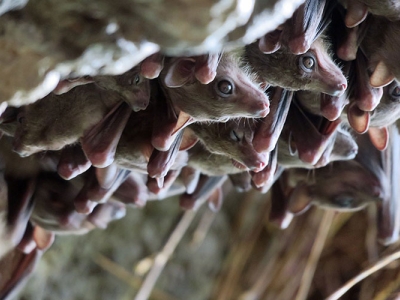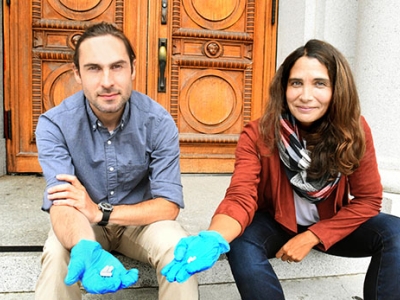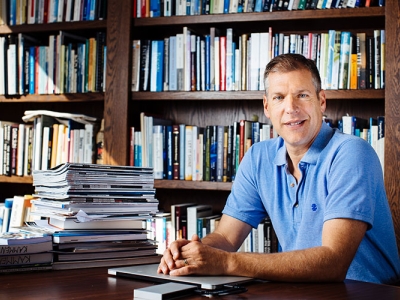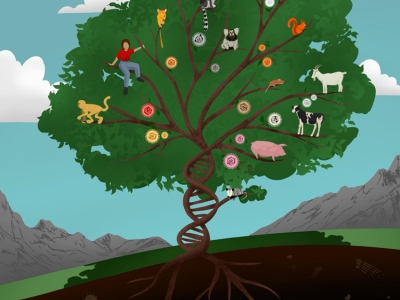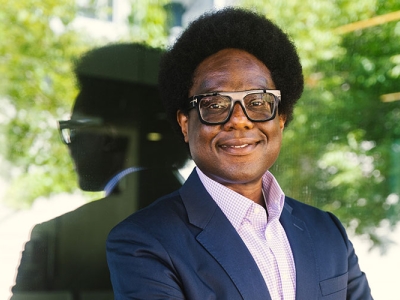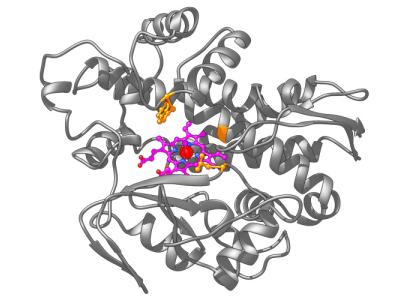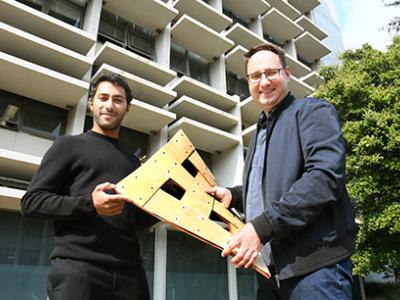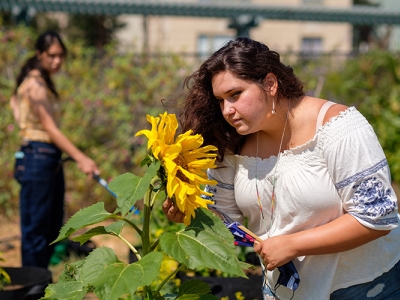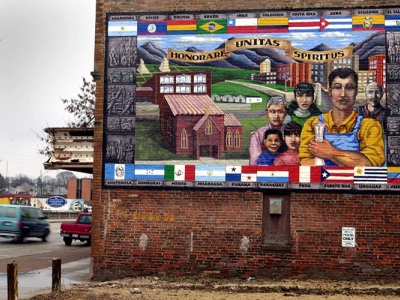When a massive wildfire tears through a landscape, what happens to the animals? In a rare stroke of luck, researchers from the University of California, Berkeley and other universities were able to track a group of black-tailed deer during and after California’s third-largest wildfire, the 2018 Mendocino Complex Fire. The results were published Oct. 28 in the journal Ecology and Evolution.
Research News
Learn more about UC Berkeley's researchers and innovators.
Showing 929 - 944 of 3495 Results
The program run for five years by the Center for Effective Global Action has supported government improvements across continents.
University of California, Berkeley, space scientists have been tapped by NASA to lead the development of a new orbiting space telescope dedicated to studying the evolution of our Milky Way galaxy.
Microbiologist Cecilia Martinez-Gomez studies a widespread specie of bacteria that thrives on rare earth elements, also known as rare earth metals or lanthanides. She has engineered one strain of the bacteria to efficiently accumulate a rare earth element known as neodymium from electronics waste and recycle it back to the industry for making batteries, speakers, even jet turbines.
A new policy brief released today by the California Policy Lab (CPL) and the People Lab at UC Berkeley shows that making simple changes to Cal Grant financial aid award letters significantly increased the number of California high school students who registered for an online account, a key first step for receiving the grant.
Whether chatting with friends at a dinner party or managing a high-stakes meeting at work, communicating with others in a group requires a complex set of mental tasks. Our brains must track who is speaking and what is being said, as well as what our relationship to that person may be — because, after all, we probably give the opinion of our best friend more weight than that of a complete stranger. A study published today in the journal Science provides the first glimpse into how the brains of social mammals process these types of complex group interactions.
More than 40 million MRI scans are carried out every year in the U.S. In about one out of three, patients get an infusion containing the metal gadolinium as a contrast agent to improve imaging.
Because contrast MRIs sometimes lead to potentially life-threatening complications, the FDA issued a warning against contrast MRIs for patients with kidney disease. Rebecca Abergel studies the chemical biology of metals, with a research focuses on organic molecules that can sequester and eliminate metals in the body, a chemical process known as chelation. She is using her Bakar Fellow support to evaluate the effectiveness of a chelating drug she has developed.
UC Berkeley professor Daniel Kammen has been selected to serve as senior adviser for energy, climate and innovation for the U.S. Agency for International Development (USAID), the agency announced this week.
The University of California, Berkeley, and the University of California, San Francisco, today (Oct. 20, 2021) jointly launched a new, one-of-a-kind program in computational precision health, a significant step toward advancing this new field and, ultimately, improving the quality and equity of health care.
A new study led by researchers at University of California, Berkeley, and Washington University explored the function of one component of this junk DNA, transposons, which are selfish DNA sequences able to invade their host genome. The study shows that at least one family of transposons — ancient viruses that have invaded our genome by the millions — plays a critical role in viability in the mouse, and perhaps in all mammals.
The National Academy of Medicine announced today that UC Berkeley law professor and bioethicist Osagie K. Obasogie will be among 100 new members elected to join its ranks this year.
A collaboration between synthetic chemists and synthetic biologists at the University of California, Berkeley, and Lawrence Berkeley National Laboratory has now overcome that hurdle, engineering bacteria that can make a molecule that, until now, could only be synthesized in a laboratory.
As the earth’s climate warms, residents of affluent nations will find some relief with air conditioning, but people in lower-income countries may have to pay vastly more for electricity or do without cooling, says a new study co-authored at the University of California, Berkeley.
More than a billion people around the world – hundreds of millions of families – can’t afford secure housing. Researchers project the housing gap will nearly double within a decade.
Simon Schleicher is part of a new generation of architects and engineers developing novel designs and construction technologies to ramp up production of affordable homes. The Bakar Fellows program supports his research to advance the use of 3D printing in home construction.
There’s a new garden at UC Berkeley, but for Adina Lewis and other Indigenous people in the campus community, it’s much more than flora and fauna. The Indigenous Community Learning Garden is a place where both they and native plants can connect and thrive.
UC Berkeley ethnic studies professor Laura E. Pérez believes using Latinx — the gender-neutral term for Latina or Latino — can help bring unknown Latinx stories and experiences to the forefront. While the word challenges gender binaries in the Spanish language, Pérez said, in use, Latinx also encourages discussions around cultural and racialized diversity and inclusivity.


